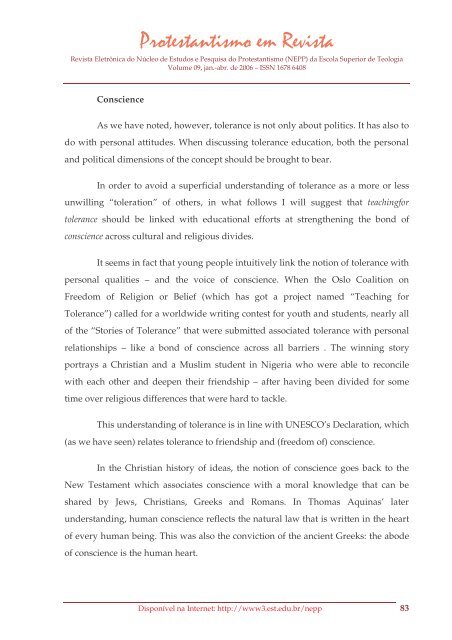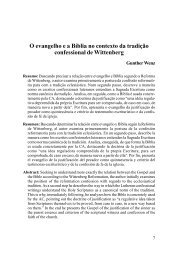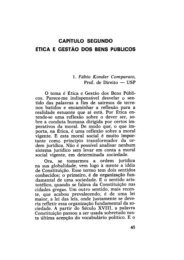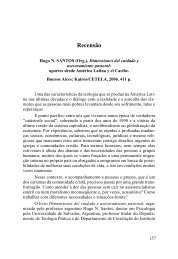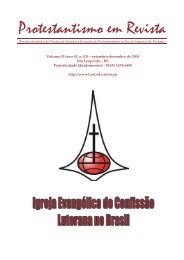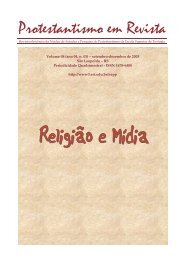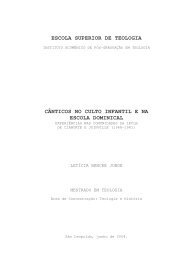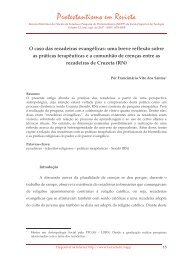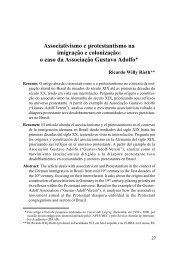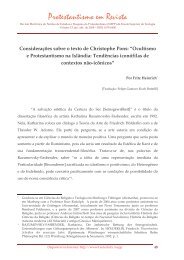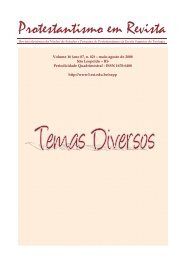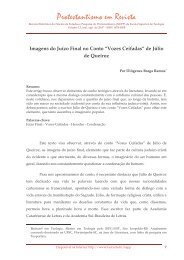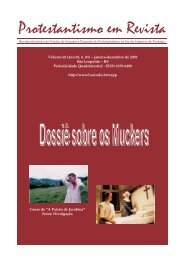Protestantismo em Revista, volume 09 (Ano 05, n.1) - Faculdades EST
Protestantismo em Revista, volume 09 (Ano 05, n.1) - Faculdades EST
Protestantismo em Revista, volume 09 (Ano 05, n.1) - Faculdades EST
You also want an ePaper? Increase the reach of your titles
YUMPU automatically turns print PDFs into web optimized ePapers that Google loves.
<strong>Revista</strong> Eletrônica do Núcleo de Estudos e Pesquisa do <strong>Protestantismo</strong> (NEPP) da Escola Superior de TeologiaVolume <strong>09</strong>, jan.-abr. de 2006 – ISSN 1678 6408ConscienceAs we have noted, however, tolerance is not only about politics. It has also todo with personal attitudes. When discussing tolerance education, both the personaland political dimensions of the concept should be brought to bear.In order to avoid a superficial understanding of tolerance as a more or lessunwilling “toleration” of others, in what follows I will suggest that teachingfortolerance should be linked with educational efforts at strengthening the bond ofconscience across cultural and religious divides.It se<strong>em</strong>s in fact that young people intuitively link the notion of tolerance withpersonal qualities – and the voice of conscience. When the Oslo Coalition onFreedom of Religion or Belief (which has got a project named “Teaching forTolerance”) called for a worldwide writing contest for youth and students, nearly allof the “Stories of Tolerance” that were submitted associated tolerance with personalrelationships – like a bond of conscience across all barriers . The winning storyportrays a Christian and a Muslim student in Nigeria who were able to reconcilewith each other and deepen their friendship – after having been divided for sometime over religious differences that were hard to tackle.This understanding of tolerance is in line with UNESCO’s Declaration, which(as we have seen) relates tolerance to friendship and (freedom of) conscience.In the Christian history of ideas, the notion of conscience goes back to theNew Testament which associates conscience with a moral knowledge that can beshared by Jews, Christians, Greeks and Romans. In Thomas Aquinas’ laterunderstanding, human conscience reflects the natural law that is written in the heartof every human being. This was also the conviction of the ancient Greeks: the abodeof conscience is the human heart.Disponível na Internet: http://www3.est.edu.br/nepp 83


